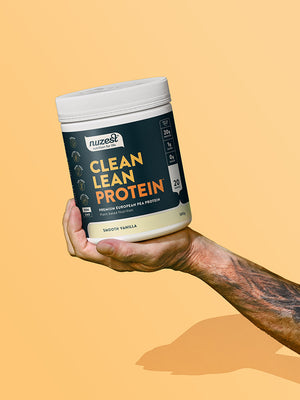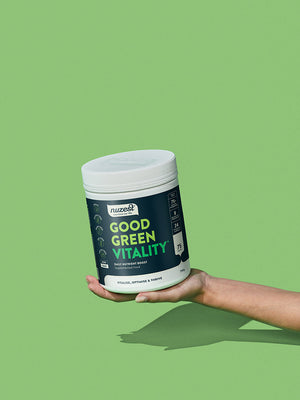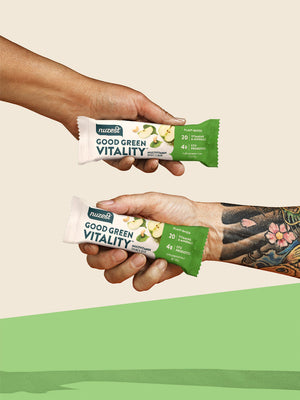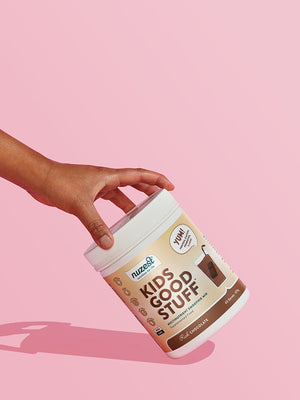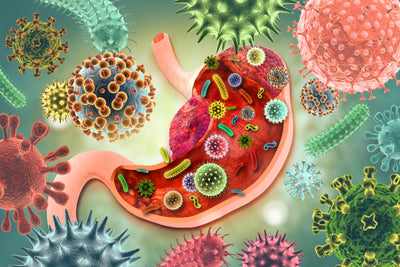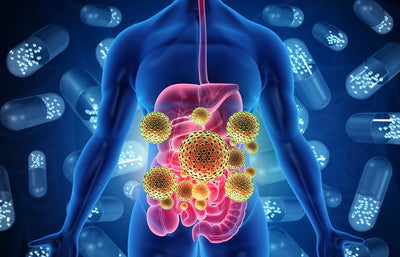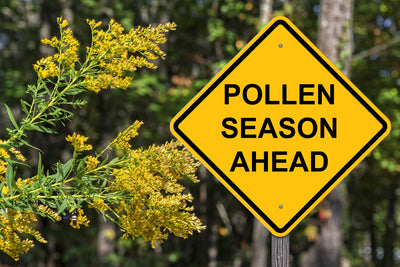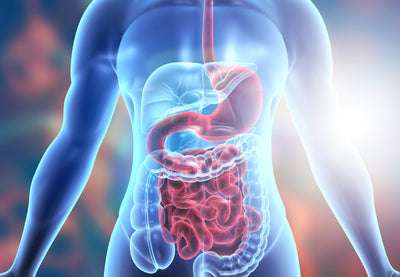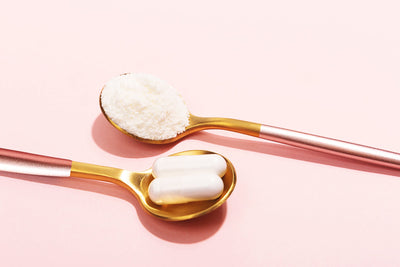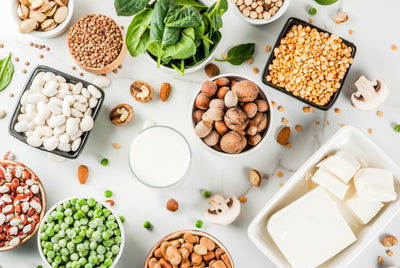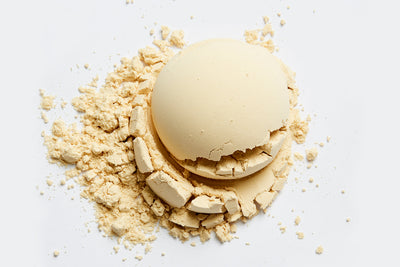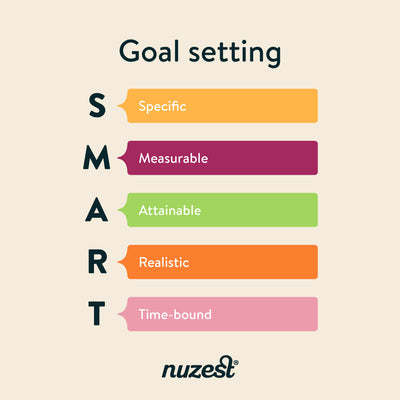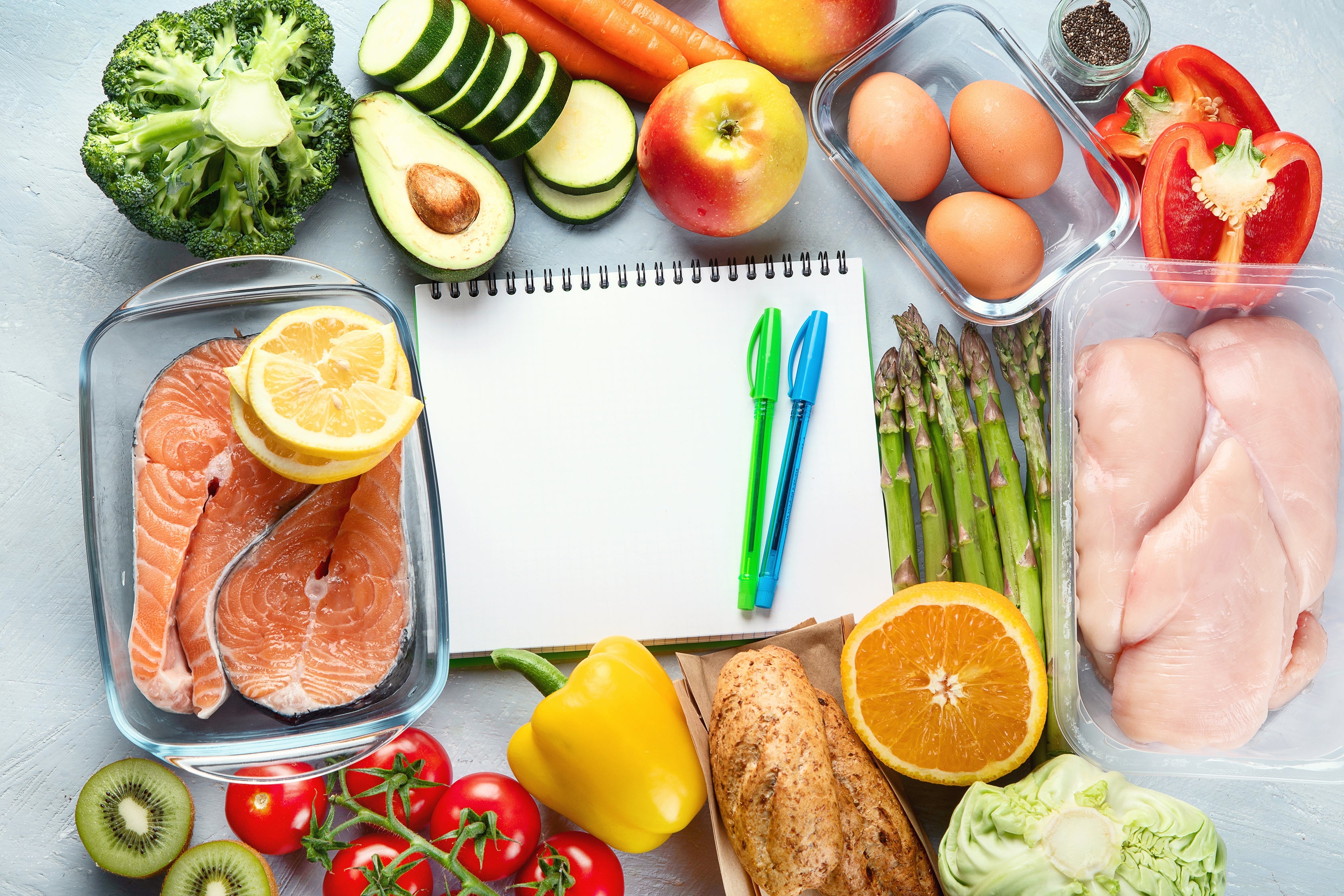
5 min read
The Importance of Meal Preparation and Planning
Posted By
Emma Linnea
Author: Lauren Parchi
For many of us, the start of a new year brings about new hopes and aspirations for healthy habits, however, when it comes to creating these new healthy habits, it’s easy to fall off the bandwagon. In fact, up to 80% of New Year resolutions are unsuccessful[1].
Meal preparation and planning is one of those things we all know we should do but often don’t. Meal preparation involves the planning and cooking of your weekly meals ahead of time and is a good idea for those who are looking to save time, money and get a bit more organised with their nutrition.
Here are our top three ‘how to steps’ for meal preparation that will encourage successful healthy habits in the New Year.

- Plan your menu for the week ahead.
Like the saying suggests, “If you fail to plan, you plan to fail.”. Sitting down and planning out a menu is one of the most important steps in meal prep.
How To:
- Use a menu plan template and/or an App such as ‘Mealime Meal Plans & Recipes’ to plan out your meals for the week ahead.
- Identify your busiest days – late nights, early mornings, social commitments and plan your meals accordingly.
- Create nutritionally balanced meals by building each meal around the three key macronutrients – protein, carbohydrates and fat. An example of this may include overnight oats, with oats as the carbohydrate, Clean Lean Protein as the protein and peanut butter as the fat.
- Remember, just because you are meal prepping, doesn’t mean your meals should be boring! Sit down with yourself, your partner or your family and choose meals that you enjoy! This will encourage successful meal preparation.
- Prepare meals ahead of time.
Setting aside time on the weekend to meal prep will keep you organised Monday through to Friday. Preparing your own food also provides you with more control over what goes into your meals, which is beneficial for those with specific health and nutrition goals.
How To:
- Allocate three hours on the weekend to shop, cook and portion out meals.
- Batch cooking is an effective method that can be used to prepare multiple meals at once. When preparing some of your favourite recipes, try doubling the quantities so that you increase the number of serves
- Wash, cut, cook and store food in advance. Vegetables can be roasted on large trays, and grains such as rice and quinoa can be cooked and stored in the fridge to be added to meals throughout the week.
- Plan and portion out healthy snacks. Cut up fruit at the start of the week and store in the fridge. This can be consumed with nuts for a perfectly balanced snack.
- To ensure your meals last, store additional serves in air-tight containers in the freezer. It is worth investing in good quality airtight, food storage containers as this will guarantee your foods freshness.
- Variety is key.
Whilst it is easy to prepare the same meals week after week, this can create a lack of variety and become monotonous and tasteless.
How To:
- To avoid monotony, come up with three to four core recipes that can be rotated throughout the week. Some great core recipe ideas include vegetable casseroles, lentil curries and pasta bakes.
- Adding vegetables that are in season ensures diversity.
- The addition of herbs, spices and condiments are also a fantastic way to create interest and variety!
Meal preparation and planning is a fantastic way to stay organised and can be an important tool for those wanting to stay on top of their health goals in the New Year. With these simple tips, you’ll have plenty of healthy options ready to support you throughout the week.
[1] Luciani, J. (2015). Why 80 Percent of New Year's Resolutions Fail. Retrieved from https://health.usnews.com/health-news/blogs/eat-run/articles/2015-12-29/why-80-percent-of-new-years-resolutions-fail.
Related news
min read
An Introduction to Gut Health & Nutrition – 5 Must See Articles
Gut health significantly affects overall wellbeing, influencing brain function, immunity, and metabolism. A balanced gut microbiota, influenced by diet and environment, can potentially enhance health, aid digestion, and reduce allergies. The roles of probiotics and prebiotics in gut health are also discussed.
min read
Probiotics vs. Prebiotics
Unleash gut health with probiotics and prebiotics! Strengthen digestion, immunity, and overall well-being. Try Nuzest's Good Green Vitality for convenient support with 8 billion CFU of probiotics. Take charge now!
min read
The Link Between Gut Health & Allergies - Plus 5 Top Tips to Help
Discover the link between gut health and allergies, and how the gut microbiome influences the body's immune response to allergens. Learn how adopting a balanced diet with prebiotics and probiotics can support gut health, reducing the risk of allergic reactions. Explore solutions for allergy relief and fostering a healthier gut with Nuzest’s multi-nutrient formula, Good Green Vitality.
min read
The Great Diet Debate: Unravelling the Tapestry of Popular Eating Plans
Exploring popular diets such as the Mediterranean, Ketogenic, Plant-Based, Paleo, and Intermittent Fasting, this overview highlights their principles, benefits, and considerations. It emphasizes the importance of finding a dietary pattern that aligns with individual health goals and preferences, while suggesting the potential benefits of incorporating a multi-nutrient supplement for overall health.
min read
The Gut Connection: How to Improve Your Digestion and Gut Health in 6 Steps
Discover the significance of gut health and its impact on digestion and overall well-being in this insightful article. Learn six practical steps, including maintaining a balanced diet, staying hydrated, managing stress, and using antibiotics wisely, to promote a healthy gut and enhance vitality.
min read
Does Gut Health Affect Your Immune System? | Do These 6 Things
The gut microbiome, which consists of trillions of bacteria in our digestive tract, plays a crucial role in supporting our immune system and overall health. Consuming probiotics and prebiotics, staying hydrated, managing stress, limiting processed foods, and engaging in outdoor activity and exercise are effective strategies to promote a healthy gut and enhance immunity.
min read
What is Collagen? Types, Sources and Benefits of Supplementation
Collagen is essential for joints, bones, muscles, ligaments, tendons, cartilage, skin, hair and nails.2 It is one of the primary structural proteins of connective tissue and plays a crucial role in the body by cushioning, strengthening, hydrating, binding, and connecting tissues together.3 Connective tissues are able to provide physical and mechanical support through the collagen, elastic and reticular fibres
min read
Kids Good Stuff for Skin Health
How can you ensure your kids have healthy skin? A part from the obvious, what nutrients can we provide our kids to ensure their skin stays in tip top shape?
min read
Maximising Mood In Your Kids
Almost 1 in 7 children and adults aged 4-17 had been diagnosed with a mental health disorder. Amy Butler discusses good nutrition and lifestyle modifications, that can help to reduce the risk.
min read
Long-Lasting Energy For Kids
Children and adolescents are going through massive periods of growth and development. To keep up with the demands of school, extracurricular activities, sports and friendships, kids often need a bit of an energy boost. In our latest blog we break down some specific nutrients for energy, to help support growing kids, and the best places to source them from.
min read
Setting Health Goals & Staying Motivated in 2021
Use this tried and tested goal strategy to set smaller, specific goals to avoid the overwhelm of unrealistic and vague health objectives.







